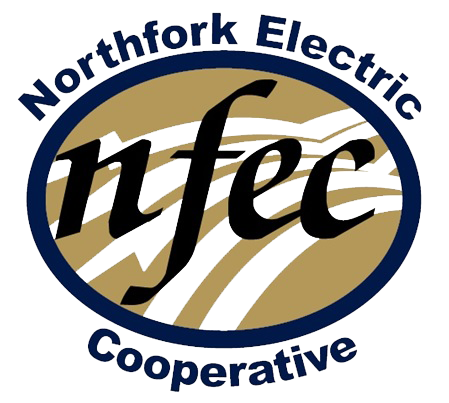What are capital credits?
Unlike investor-owned utility companies that strive to generate profits for shareholders, electric cooperatives like NFEC operate on an at-cost basis. Any profits made by NFEC – referred to as margins – are returned to the consumer-members. Capital credits represent these dividends.
Capital credits are calculated each year in which NFEC makes a profit and allocated to each member in proportion to his/her total patronage for that year. NFEC retains and uses capital credits for operating capital until the financial condition of the cooperative, determined by its banker, the National Rural Utilities Cooperative Finance Corporation (CFC), the Rural Utilities Service (RUS) and NFEC’s board of trustees, permits the co-op to issue a refund.
When and how are capital credits returned?
Returning capital credits is a two-step process:
Step One – Allocation
First, an allocation determines each member's share of the cooperative's margin for a given year. Margins are allocated – or assigned – to members who purchased electricity from the cooperative during the year in which the margin was generated. These margins (revenue in excess of expenses) are allocated using a proportional ratio. Each member’s allocation is determined by his/her patronage for that year. The co-op keeps a permanent record of each member’s capital credit account, which is where the allocated amount remains until it is paid, or "retired."
Step Two – Retirement
After reviewing the financial health of the cooperative, the board of trustees may declare a retirement, at which time all or part of each member's allocated amount is paid.
What does NFEC do with capital credits not yet retired?
Capital credits are a significant source of equity for most electric cooperatives. Equity is used to help meet the capital expenditures of the co-op, such as paying for new equipment to serve members and repaying debt. This lessens the need to borrow money to finance capital expenditures in the future.
What happens to capital credits belonging to deceased members?
A rightful heir can complete a Certification of Entitlement form, which must be notarized, and provide the appropriate documentation to claim a deceased loved one's capital credits.
What if I can't provide a will or trust showing that I'm the rightful heir to an estate?
In lieu of providing a trust or will, an Affidavit for Collection of Personal Property form can be submitted. It must be notarized.
If you would like to give back to our area youth, consider donating your capital credits to NFEC's Scholarship Fund.
Members who elect to donate their capital credits to NFEC's Academic Scholarship Fund can do so by completing an Election to Donate NFEC Capital Credits form. Heirs must provide the appropriate documentation to claim their deceased loved one's capital credits before donating them to the co-op's scholarship fund.
In order to assure that you receive your patronage capital statement, we must have your correct 911 mailing address. Below is the list of accounts that we need correct addresses for. They are listed alphabetically by the name on the account. If you see your name, please submit a Patronage Capital Credit Record Update Form.

